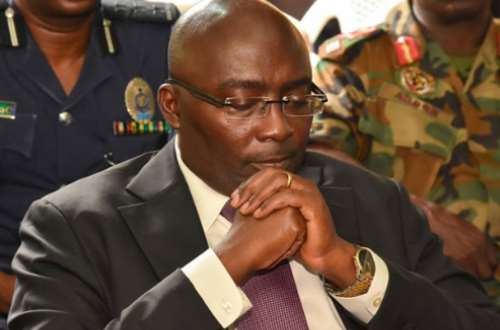
he Vice President, Dr Mahamudu Bawumia says the Ministry of Finance has approved a sum of one hundred and seventy-seven million Ghana cedis (GH¢177million) to be disbursed to trainee nurses across Ghana.
This is to ensure that all outstanding debt owed to the trainees are cleared by the end of this week.
Speaking at a meeting with nurses and midwives in Accra, the NPP’s 2024 flagbearer said government is committed to keeping its promises.
“This Thursday, the Controller is transferring GH¢177 million to the Ministry of Health to pay the nurses trainee allowances.
“So I have also alerted Dr Okoe-Boye to be on standby. When the money hits the Ministry of Health account, they should move it quickly to the accounts of the nurses trainees so that they will have their alawa. It will drop,” he assured.
The revelation comes days after the Vice President was confronted by a female final-year nursing student who said she had never received the government allowance (‘allawa’) during a campaign event in the Bono Region.
In his response, Dr Bawumia promised to take up the issue with the Ministry of Finance.
“I wasn’t sure of where you were with your ‘allawa’, but I think that I will check with the Ministry of Finance immediately after I return. And I will make sure they pay you your ‘allawa’ if it has not been paid,” he said.
The Vice President said he will ensure the continuation of the nurses’ and teacher trainees’ allowances, adding that, despite occasional delays, he would make sure that payment was made to support the trainees.
He said that steps were being taken to reduce the backlog of unemployed nurses and midwives, notably the 2020 and 2021 batches, as soon as possible.
“As the Vice President, I am dedicated to supporting the work of our nurses and midwives especially with the coming on stream of the agenda 111 state-of-the-art facilities.”
Dr Bawumia acknowledged that nurses and midwives are more than just healthcare providers, stating that “They are highly skilled professionals who provide evidence-based care to patients and families, hence their expertise, empathy, and dedication helped enhance health outcomes, lower healthcare expenses, and improve the overall well-being of individuals and communities.”
Source : Joynews



